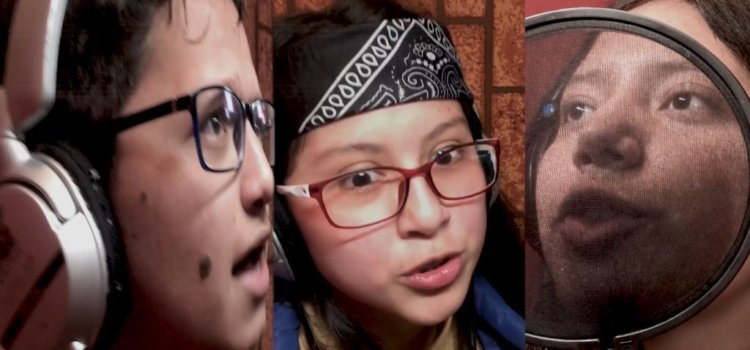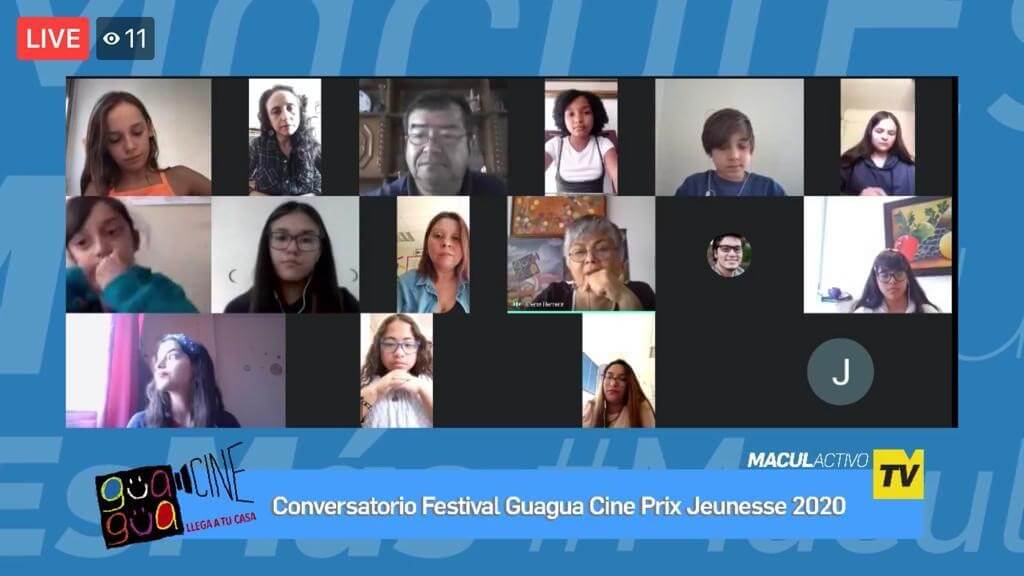
The first virtual GUAGUA CINE-PRIX JEUNESSE Ecuador Festival: A new form and many new ideas

The 9th edition of the GUAGUA CINE-PRIX JEUNESSE Ecuador Festival took place from 11 August to 14 September 2020, the year in which we had to face the complex circumstances of a pandemic that has isolated the majority of the population and affected interpersonal relations. Nevertheless, we decided not to stop and to take advantage of certain benefits of the digital world to hold the festival in an online version under the slogan “Guagua Cine comes to your home”. Even though this modality deprived us of direct contact, expressions of amazement, smiles and hugs from the boys and girls from the schools, neighborhoods and peasant and indigenous communities that we normally visit every year with our festival, it was also the incentive to develop new ideas and significantly expand the range of activities not only inside but also outside Ecuador.
We were thankful to have support of the PRIX JEUNESSE INTERNATIONAL Festival, of our long-standing, loyal allies and sponsors, of television stations from Ecuador, Chile, Argentina and Colombia, of the municipality of Macul (Chile) and of directors and actors of some excellent programmes. This festival not only provided quality audiovisual content of interest to the youngest audiences but also various other activities which were motivating experiences for the children and their teachers, for creators and protagonists of the productions, and for us who produced the different events.
Screenings of the PRIX JEUNESSE Suitcase took place through Zoom, for children and young people from schools, for migrants and refugees, SOS Children’s Villages, holiday camps and a community in Chile. International discussion panels were held with the directors and protagonists of the programmes “Pichintún – Camilo, the Blind Child”, “What Would You Do?” and “Kuxlejal”. We also coordinated workshops in stop-motion, video making with mobile phones and script writing offered free of charge by Argentine institutions, and formed a group of young people from the above foundations to create a rap video clip to express their experiences and conflicts during the lockdown, for which they received introductory courses in rap composition and audiovisual creation. The opening and closing events of the festival were televised thanks to the support of UnsionTV and the makers of the short films presented who kindly lent us the relevant licences.
It is worth mentioning that children and young people actively participated in the exhibitions and discussions and gave feedback, which was highly appreciated by the producers and directors of programmes. It is also important to mention that we had some resistance from teachers and adults in general when we mentioned to them that we will show productions dealing with issues such as same-sex marriage or suicide. The young people on the other hand were very open to this and stressed the need to publicise these issues even on a much larger scale through the media, arguing that these kinds of productions respect children, involve them in dealing with real problems and motivate them to solve them. Their very open attitude towards taboo subjects of the adult world teaches us that parents and teachers have a lot of work to do with themselves in order to be in tune with the world of our children, pupils and childhood in general and to be able to accompany them in the different processes. The following quotes illustrate this dilemma:
“I think you don’t talk about it out of shame, because when you express that you have anxiety or depression, they tell us that we are just trying to get attention (…). I really wonder how they are going to manage to talk about a subject that is condemned by society. Society itself is what causes these mental disorders and they don’t recognise it or don’t want to talk about it.” (Ivanna, Ecuador, 15 years old, referring to „Life/Kuxlejal“, a documentary about teenage suicide in indigenous communities in Mexico).
“I have friends from the LGTBI collective. It seems nice to me to see different ideologies and ideas. Before I lived like closed. (…). Now I understand that it’s not bad to be different, it’s beautiful.” (Valentina, Chile, 13 years old, referring to “What would you do?”, a magazine programme from Colombia)
As a conclusion, we can say that the known disadvantages and limitations of the lockdown have been compensated, among others, by having contributed to a good use of free time, as well as to a participative and playful education complementary to formal online education, motivating not only children but also teachers. But nothing compares to the experience of children crossing borders, having encounters with children from other regions and countries and talking to them in the same language and under the same conditions, motivated by age-appropriate common interests.
Authors: Elena Herrera, Productora Ejecutiva, Petisa Producciones, and Enrique Novas, Coordinador cultural, Asociación Humboldt
